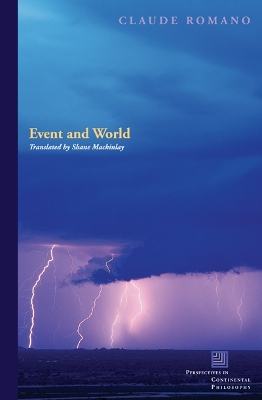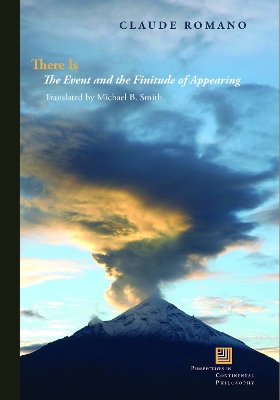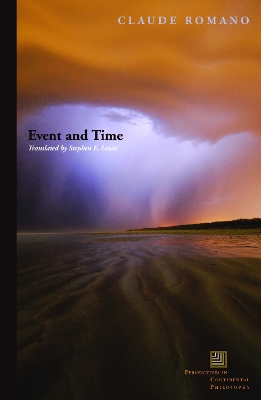Perspectives in Continental Philosophy
3 total works
The world into which we are born as the horizon of all our behavior is a world both of things and of events. But what are events? Though familiar to all of us, they are philosophically obscure. However central they may be to the question of being in Western thought, from Aristotle to Heidegger, events have always been assigned a derivative status, indeterminate, at the margins of philosophy.
Claude Romano seeks to change all that, to describe precisely what sort of phenomenon an event is and to establish how it can be grasped via a phenomenology. He seeks, above all, to understand a human
being as one to whom events can occur, who is able to face them and to appropriate them through experience. “Evential hermeneutics” is the name he gives this approach, which conceives human being as an undergoing of events for which there can be no substitution and as thereby becoming himself.
Romano at once forces us to think human existence—or rather, human adventure—in the light of events and helps us understand how and why the event has been neglected in the ontological tradition.
Contemporary philosophy, from Kant through Bergson and Husserl to Heidegger, has assumed that time must be conceived as a fundamental determination of the subject: Time is not first in things but arises from actions, attitudes, or comportments through which a subject temporalizes mtime, expecting or remembering, anticipating the future or making a decision.
Event and Time traces the genesis of this thesis through detailed, rigorous analyses of the philosophy of time in Plato, Aristotle, and Augustine, ultimately showing that, in the development of metaphysics, the understanding of the temporal phenomenon as an inner-temporal phenomenon has made possible time’s subjectivization.
The book goes on to argue that time is in fact not thinkable according to metaphysical subjectivity. Instead, the guiding thread for the analysis of time must shift to the eventual hermeneutics of the human being, first developed in Event and World, and now deepened and completed in Event and Time. Romano’s diptych makes a compelling, rigorous, and original philosophical contribution to the thinking of the event.


